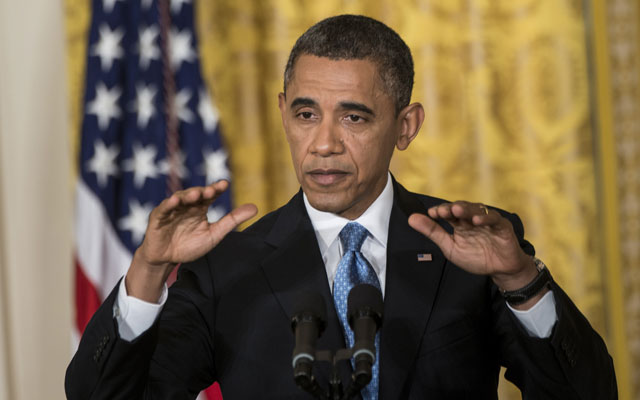President Obama referred repeatedly to the debt ceiling debate in today’s press conference in a textbook example of Washington “spin,” or the art of selectively ignoring certain facts while portraying others in a particular light.
“You don’t go out to dinner and then, you know, eat all you want and then leave without paying the check,” Obama said, repeatedly saying that Congress has already promised all this spending, and the debt limit debate is simply a question of paying the bill.
But the debt ceiling debate is about much more than just paying bills—there are facts the President omitted. It’s also one of those rare opportunities forcing legislative action; in this case, action to reconsider some of those previous spending decisions.
As the President stated repeatedly, he’s willing to have a “conversation” with Republicans on spending cuts in a “balanced” fashion. He’s willing to have a dialogue. He’s willing to talk. But today, Obama said:
What I will not do is to have that negotiation with a gun at the head of the American people; the threat that unless we get our way, unless you gut Medicare or Medicaid or, you know, otherwise slash things that the American people don’t believe should be slashed, that we’re going to threaten to wreck the entire economy.
The President has thus far proven he is unwilling to lead on spending cuts, and he has thus far proven unwilling to entertain reforming entitlements to ensure low-income seniors are protected, for example, while ensuring programs like Social Security and Medicare can endure for future generations.
Talk is cheap, but the consequences of continuing on today’s path of massive deficit spending will prove very expensive, if not downright ruinous, for future generations. And so Republicans are exactly right to use the debt ceiling debate to force the President to move beyond conversations and dialogue, to leadership and action.
The President also emphasized what he believes is his trump card in this debate – the word “default.” He’s absolutely right that the Congress should not and ultimately will not risk the credit standing of the United States government. But this assurance rests not on congressional action to raise the debt ceiling, but on the simple fact that the Treasury has far more than enough funds to pay all interest as it comes due.
Suggesting that the United States might default on its debt is factually wrong and shameful behavior on the President’s part.































